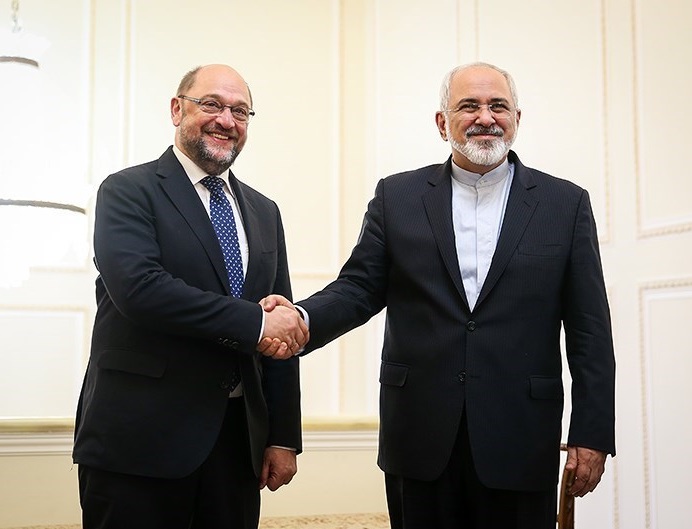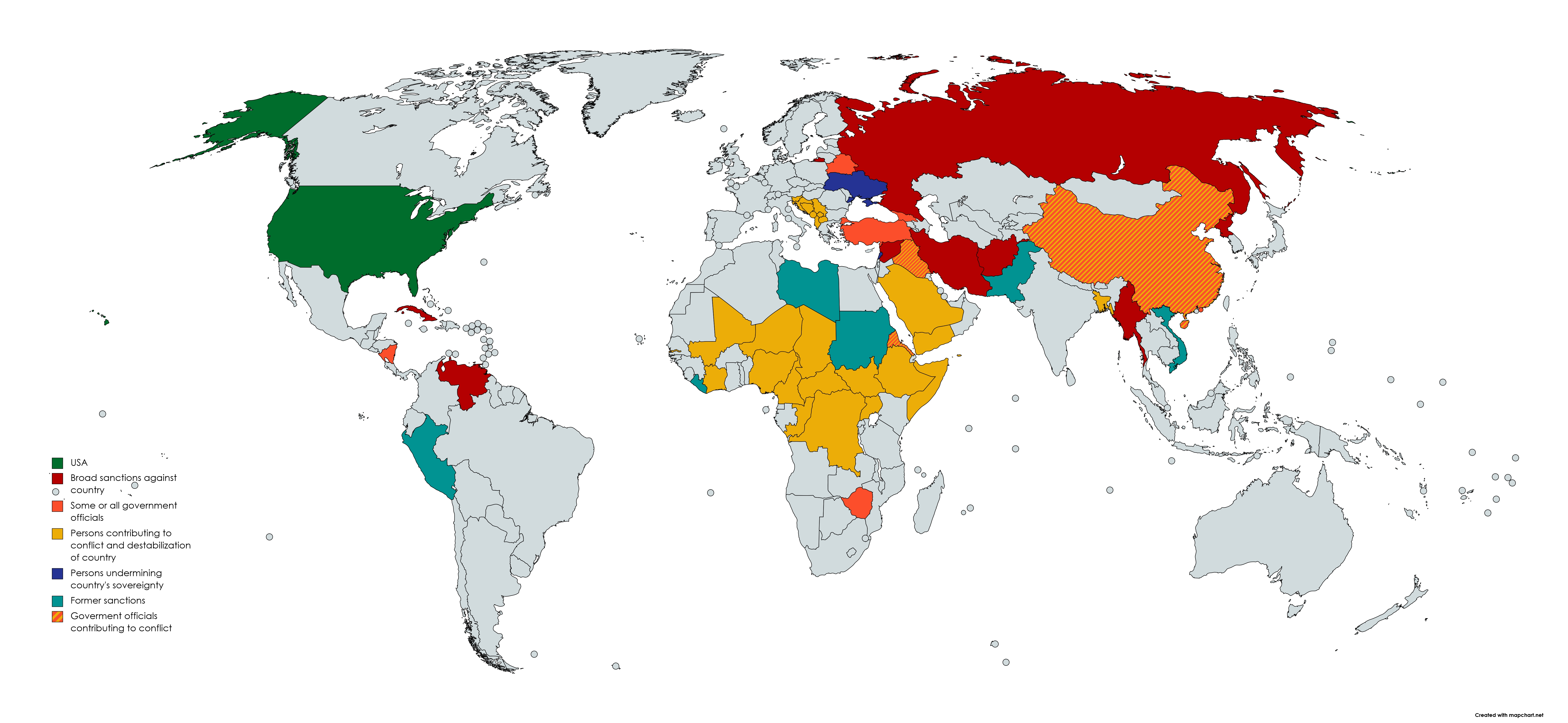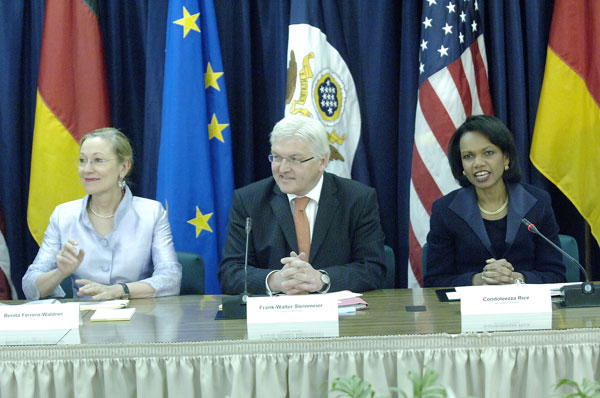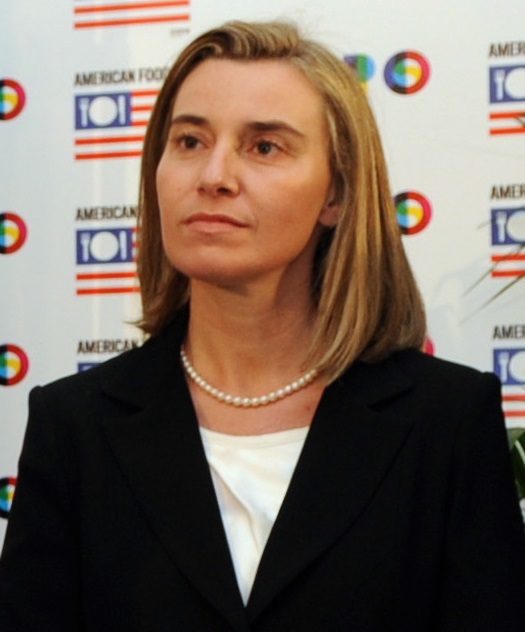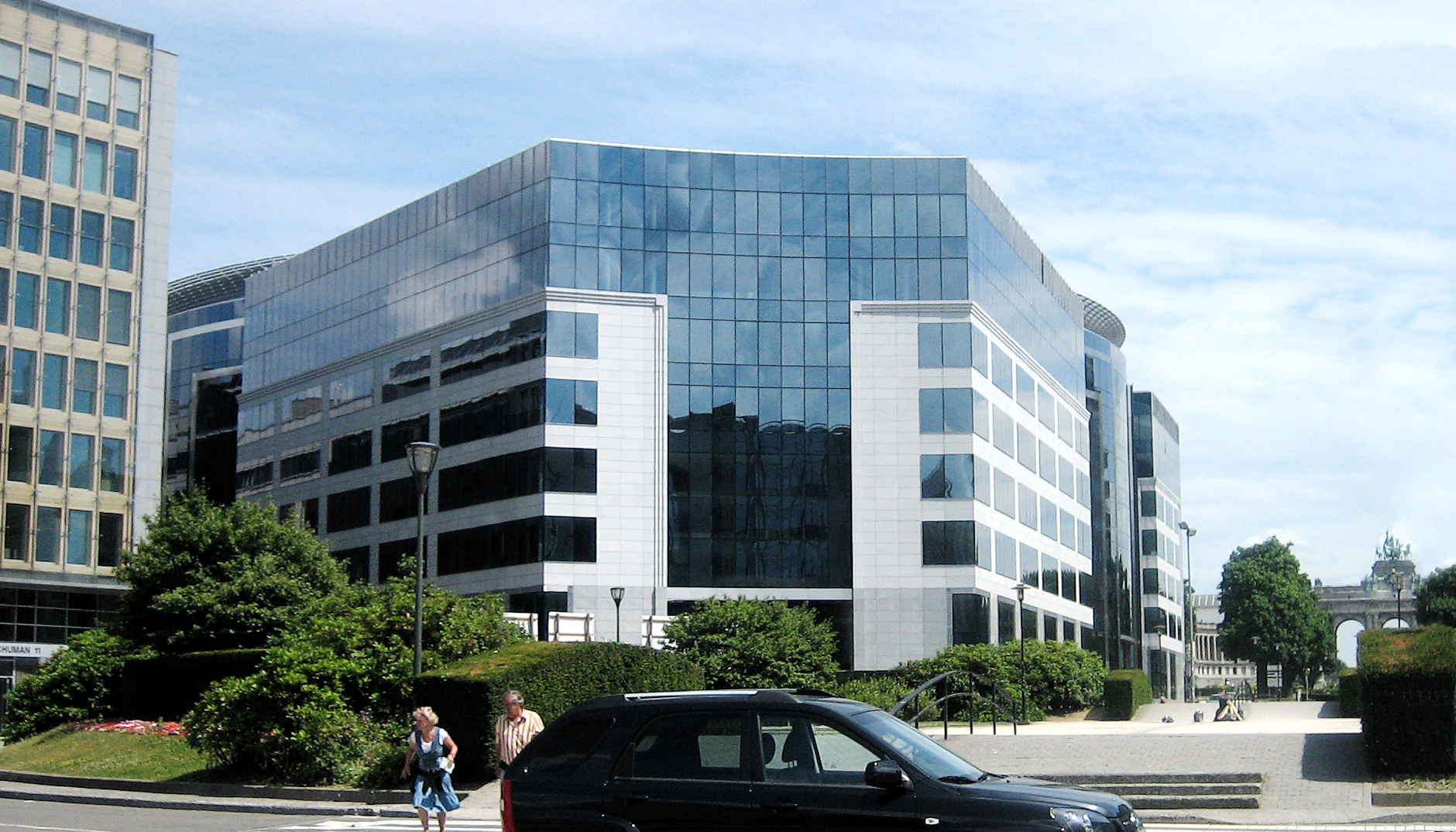|
Instrument In Support Of Trade Exchanges
The Instrument in Support of Trade Exchanges (INSTEX) is a European special-purpose entity, special-purpose vehicle (SPV) established on 31 January 2019. Its mission is to facilitate non-United States dollar, USD and non-Society for Worldwide Interbank Financial Telecommunication, SWIFT transactions with Iran to avoid breaking U.S. sanctions against Iran, U.S. sanctions. Five EU nations declared in a joint statement on 29 November 2019 that they will join the INSTEX mechanism for trade with Iran. These countries are Belgium, Denmark, Netherlands, Finland and Sweden. European countries said on March 2023 they had decided to end INSTEX, through which only a single transaction had traded. Ali Khamenei, Leader of the Islamic Revolution, likened the European financial mechanism for trade with Iran to a “bitter joke". HQ The SPV is headquartered in Paris and is headed by Per Fischer, who formerly served as Head of Financial Institutions at Commerzbank, between 2003 and 2014. Purp ... [...More Info...] [...Related Items...] OR: [Wikipedia] [Google] [Baidu] |
Société Par Actions Simplifiée
''Société par actions simplifiée'' (SAS; English: simplified joint-stock company) is a French type of business entity. It is the first hybrid entity enacted under French law and based on common law principles rather than civil. It is similar to a limited liability company under United States law, as the Delaware LLC was the model used by the French government. The SAS is also similar to the limited company in British law, and most other hybrids, though the hybrid in civil-law countries is quite different because there is also a hybrid of common law principles applied. A ''société par actions simplifiée'' has its annual statements audited by an independent body and published. The head of a ''société par actions simplifiée'' is its ''président''. However, unlike the ''société anonyme'', it does not have a board. The ''président'' is also responsible for the operation of the company. The company may also have a ''directeur général'' (managing director), who has t ... [...More Info...] [...Related Items...] OR: [Wikipedia] [Google] [Baidu] |
Sergei Ryabkov
Sergei Alexeyevich Ryabkov (russian: Сергей Алексеевич Рябков) (born 8 July 1960) is a Russian politician, currently serving as the Deputy Foreign Minister of the Russian Federation since 2008. Early life and education Ryabkov was born in Leningrad in 1960. At age 22, in 1982, he graduated from the Moscow State Institute of International Relations. Upon graduation, he immediately joined the Russian Foreign Ministry. Political career In 1995, he worked in the Foreign Ministry's Department of European Co-operation. In 2002, he worked as a counselor at the Russian Embassy in Washington, DC. In 2006, he returned to Moscow and was appointed head of his former department (the Department of European Co-operation). He was designated Deputy Foreign Minister in 2008. On 28 December 2021, U.S. and Russia announced bilateral talks would take place in Geneva on 10 January 2022, to discuss concerns about their respective military activity and to confront rising ten ... [...More Info...] [...Related Items...] OR: [Wikipedia] [Google] [Baidu] |
Sanctions Against Russia
Sanctions, economic or international, that have been imposed on Russia include: * International sanctions during the Russo-Ukrainian War (2014–) ** Countering America's Adversaries Through Sanctions Act, US legislation (2017) ** International sanctions during the 2022 Russian invasion of Ukraine Following Russia's invasion of Ukraine in February 2022, the United States, the European Union, and other countries introduced or significantly expanded sanctions to include Vladimir Putin and other government members, and cut off "selected Rus ... (2022) For sanctions that Russia has imposed on other countries: * (20th21st centuries) * (2014–) * Russia sanctions against Ukraine (2018–) {{Sia ... [...More Info...] [...Related Items...] OR: [Wikipedia] [Google] [Baidu] |
Sanctions Against Iran
There have been a number of sanctions against Iran imposed by a number of countries, especially the United States, and international entities. Iran was the most sanctioned country in the world until it was surpassed by Russia following its invasion of neighboring Ukraine in February 2022. The first sanctions were imposed by the United States in November 1979 after a group of radical students seized the American Embassy in Tehran and took hostages. These sanctions were lifted in January 1981 after the hostages were released, but they were reimposed by the United States in 1987 in response to Iran's actions from 1981 to 1987 against the U.S. and vessels of other countries in the Persian Gulf and support for terrorism. The sanctions were expanded in 1995 to include firms dealing with the Iranian government. The third sanctions were imposed in December 2006 pursuant to United Nations Security Council Resolution 1737 after Iran refused to comply with United Nations Security Coun ... [...More Info...] [...Related Items...] OR: [Wikipedia] [Google] [Baidu] |
Iran–European Union Relations
European Union–Iran relations are the bilateral relations between Iran and the European Union (EU). The EU is Iran's largest trading partner, along with China and the United Arab Emirates. Trade with Iran is subject to the general EU import regime and the EU supports the goal of Iranian accession to the World Trade Organization (WTO). The EU has accused and criticized Iran for human rights violations, which led to diplomatic tensions, but both sides aim at improving and normalizing relations. As of 2019, the Iran–EU trade relations are stained due to the sanctions re-imposed on Iran by the United States after the US unilateral withdrawal from the multinational Joint Comprehensive Plan of Action agreement. The EU has, however, established a special Instrument in Support of Trade Exchanges to enable EU–Iran trade bypassing the US sanctions. In fact, the EU were seen to be "urging Chinese and Russian counterparts to do more to support bilateral economic ties with Iran". ... [...More Info...] [...Related Items...] OR: [Wikipedia] [Google] [Baidu] |
Central Bank Of Iran
The Central Bank of Iran (CBI), also known as ''Bank Markazi'', officially the Central Bank of the Islamic Republic of Iran ( fa, بانک مرکزی جمهوری اسلامی ايران, Bank Markazi-ye Jomhuri-ye Eslāmi-ye Irān; SWIFT Code: BMJIIRTH) is the central bank of Iran. Established under the Iranian Banking and Monetary Act in 1960, it serves as the banker to the Iranian government and has the exclusive right of issuing banknote and coinage. CBI is tasked with maintaining the value of Iranian rial and supervision of banks and credit institutions. It acts as custodian of the National Jewels, as well as foreign exchange and gold reserves of Iran. It is also a founding member of the Asian Clearing Union, controls gold and capital flows overseas, represents Iran in the International Monetary Fund (IMF) and internationally concludes payment agreements between Iran and other countries. The website of the Islamic Republic of Iran was shut down on September 21, 2022 by th ... [...More Info...] [...Related Items...] OR: [Wikipedia] [Google] [Baidu] |
Dedollarisation
Dedollarisation is a process of substituting US dollar as the currency used for (i) trading oil and/ or other commodities (i.e. petrodollar), (ii) buying US dollars for the forex reserves, (iii) bilateral trade agreements, and (iv) dollar-denominated assets. The U.S. dollar began to displace the pound sterling as international reserve currency from the 1920s since it emerged from the First World War relatively unscathed and since the United States was a significant recipient of wartime gold inflows. After the U.S. emerged as an even stronger global superpower during the Second World War, the Bretton Woods Agreement of 1944 established the post-war international monetary system, with the U.S. dollar ascending to become the world's primary reserve currency for international trade, and the only post-war currency linked to gold at $35 per troy ounce. Despite all links to gold being severed in 1971, the dollar continues to play this role to this day. Since the establishment of Brett ... [...More Info...] [...Related Items...] OR: [Wikipedia] [Google] [Baidu] |
United States Sanctions
After the failure of the Embargo Act of 1807, the federal government of the United States took little interest in imposing embargoes and economic sanctions against foreign countries until the 20th century. United States trade policy was entirely a matter of economic policy. After World War I, interest revived. President Woodrow Wilson promoted such sanctions as a method for the League of Nations to enforce peace. However, he failed to bring the United States into the League and the US did not join the 1935 League sanctions against Italy. However, in 1940, the United States participated in the ABCD line against Japan, and the Helium Act of 1925 forbade the export of that strategic commodity. Interest in trade as a tool of foreign policy expanded during the Cold War era, and many economic sanctions were applied. The Comprehensive Anti-Apartheid Act of 1986, was only in effect for five years. Later, sanctions were additionally aimed against countries which the U.S. government listed ... [...More Info...] [...Related Items...] OR: [Wikipedia] [Google] [Baidu] |
COVID-19
Coronavirus disease 2019 (COVID-19) is a contagious disease caused by a virus, the severe acute respiratory syndrome coronavirus 2 (SARS-CoV-2). The first known case was identified in Wuhan, China, in December 2019. The disease quickly spread worldwide, resulting in the COVID-19 pandemic. The symptoms of COVID‑19 are variable but often include fever, cough, headache, fatigue, breathing difficulties, loss of smell, and loss of taste. Symptoms may begin one to fourteen days after exposure to the virus. At least a third of people who are infected do not develop noticeable symptoms. Of those who develop symptoms noticeable enough to be classified as patients, most (81%) develop mild to moderate symptoms (up to mild pneumonia), while 14% develop severe symptoms ( dyspnea, hypoxia, or more than 50% lung involvement on imaging), and 5% develop critical symptoms ( respiratory failure, shock, or multiorgan dysfunction). Older people are at a higher risk of developing ... [...More Info...] [...Related Items...] OR: [Wikipedia] [Google] [Baidu] |
High Representative Of The Union For Foreign Affairs And Security Policy
The High Representative of the Union for Foreign Affairs and Security Policy (HR/VP) is the chief co-ordinator and representative of the Common Foreign and Security Policy (CFSP) within the European Union (EU). The position is currently held by Josep Borrell Fontelles. The Treaty of Amsterdam had established the position of High Representative for Common Foreign and Security Policy. The position was aggrandised by the Lisbon Treaty, which established its current title and powers, including a seat on the European Commission, and a chair of the council of EU foreign ministers. The first person to hold the full title of High Representative of the Union for Foreign Affairs and Security Policy, following the Lisbon Treaty, was Catherine Ashton. Following the Lisbon Treaty, the post is assisted by the European External Action Service (EEAS) that was set up in December 2010.Gateway to the European UnionEuropean External Axis Service– accessed 16 February 2011 Titles The form ... [...More Info...] [...Related Items...] OR: [Wikipedia] [Google] [Baidu] |
Federica Mogherini
Federica Mogherini (; born 16 June 1973) is an Italian politician who served as High Representative of the Union for Foreign Affairs and Security Policy and Vice-President of the European Commission from 2014 to 2019. She previously served as Italy's Minister for Foreign Affairs and International Cooperation from February 2014 to October 2014, in the centre-left Renzi Cabinet. She was a Member of the Chamber of Deputies (MP) from 2008 to 2014. In 2020 she was appointed rector of the College of Europe, a post-graduate university for European studies in Bruges (Belgium) and Natolin (Poland). She is a member of the Democratic Party, part of the Party of European Socialists, a political faction made up of centre-left national political parties in the EU and Norway. Early life and education Federica Mogherini was born on 16 June 1973 in Rome, Italy, to the family of the film director and set designer Flavio Mogherini (1922–1994). Mogherini attended the Sapienza University of R ... [...More Info...] [...Related Items...] OR: [Wikipedia] [Google] [Baidu] |
European External Action Service
The European External Action Service (EEAS) is the diplomatic service and combined foreign and defence ministry of the European Union (EU). The EEAS is led by the High Representative for Foreign Affairs and Security Policy (HR/VP), who is also President of the Foreign Affairs Council and vice-president of the European Commission, and carries out the EU's Common Foreign and Security Policy (CFSP), including the Common Security and Defence Policy (CSDP). The EEAS does not propose or implement policy in its own name, but prepares acts to be adopted by the High Representative, the European Commission or the Council. The EEAS is also in charge of EU diplomatic missions ( delegations) and intelligence and crisis management structures. The EEAS, as well as the office of the HR, was initiated following the entry into force of the Treaty of Lisbon on 1 December 2009. It was formally established on 1 December 2010.Rettman, Andrew (2 December 2010Ashton names EU foreign-service pr ... [...More Info...] [...Related Items...] OR: [Wikipedia] [Google] [Baidu] |
.png)
